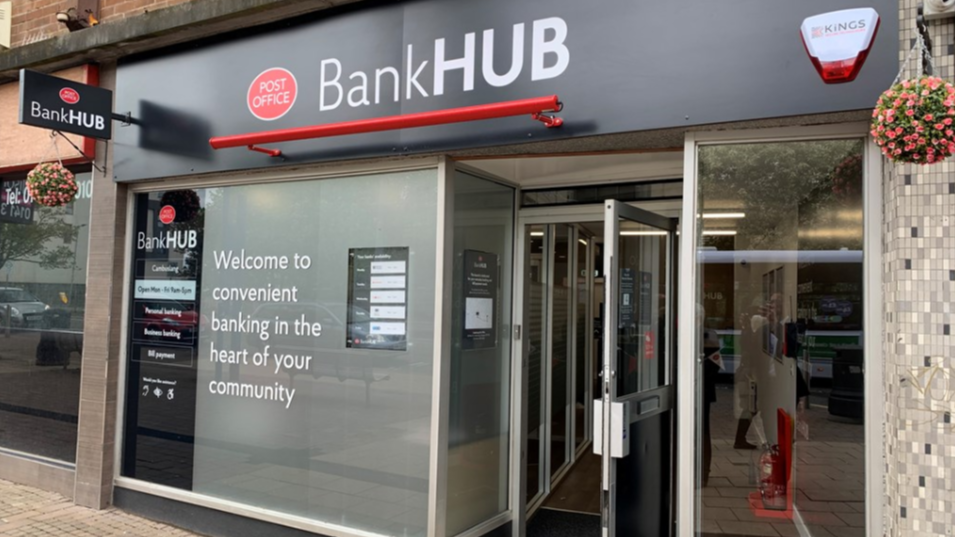Plans for nine new shared banking hubs have been announced as the wave of bank branch closures seen last year continues into 2023.
Banking hubs are a shared banking space on the High Street which offer a counter service operated by the Post Office.
At the hubs, customers of all major banks in the UK–Barclays, Danske Bank, HSBC, Lloyds Banking Group, Nationwide, NatWest, Santander, TSB, and Virgin Money–can carry out regular cash transactions throughout the working week.
Community bankers at the hubs work on rotation, with a different banking provider available on each day of the week.
The move comes after HSBC announced plans to close a further 114 branches this year.
In December, the UK's High Street lenders joined forces to launch a non-profit company aimed at developing shared banking hubs.
A month before, consumer champion Which? said that around 660 branches would have closed across the UK by the end of 2022.
Link has recommended the nine new banking hubs, alongside six new deposit services. The move takes the total number of new cash services planned for the UK to 76, although out of 38 banking hubs planned only four have been opened so far.
“Access to cash and face-to-face banking services continues to be important for millions of people across the UK,” said John Howells, chief executive, Link. “Not everyone can or is able to go digital yet, so we’re pleased to announce new cash services to support these communities.”
Link has called for banks to open hubs in Barnoldswick (Lancashire), Clay Cross (Derbyshire), Earlestown (Merseyside), Heywood (Greater Manchester), Horwich (Greater Manchester), Oakham (East Midlands), Shoreham-by-Sea (West Sussex), Stapleford (Nottinghamshire), and Watton (Norfolk).
Latest News
-
Gemini to cut quarter of workforce and exit UK, EU and Australia as crypto slump forces retrenchment
-
Bank ABC’s mobile-only ila bank migrates to core banking platform
-
Visa launches platform to accelerate small business growth in US
-
NatWest to expand Accelerator programme to 50,000 members in 2026
-
BBVA joins European stablecoin coalition
-
eToro partners with Amundi to launch equity portfolio with exposure to ‘megatrends’
Creating value together: Strategic partnerships in the age of GCCs
As Global Capability Centres reshape the financial services landscape, one question stands out: how do leading banks balance in-house innovation with strategic partnerships to drive real transformation?
Data trust in the AI era: Building customer confidence through responsible banking
In the second episode of FStech’s three-part video podcast series sponsored by HCLTech, Sudip Lahiri, Executive Vice President & Head of Financial Services for Europe & UKI at HCLTech examines the critical relationship between data trust, transparency, and responsible AI implementation in financial services.
Banking's GenAI evolution: Beyond the hype, building the future
In the first episode of a three-part video podcast series sponsored by HCLTech, Sudip Lahiri, Executive Vice President & Head of Financial Services for Europe & UKI at HCLTech explores how financial institutions can navigate the transformative potential of Generative AI while building lasting foundations for innovation.
Beyond compliance: Building unshakeable operational resilience in financial services
In today's rapidly evolving financial landscape, operational resilience has become a critical focus for institutions worldwide. As regulatory requirements grow more complex and cyber threats, particularly ransomware, become increasingly sophisticated, financial services providers must adapt and strengthen their defences. The intersection of compliance, technology, and security presents both challenges and opportunities.
© 2019 Perspective Publishing Privacy & Cookies













Recent Stories